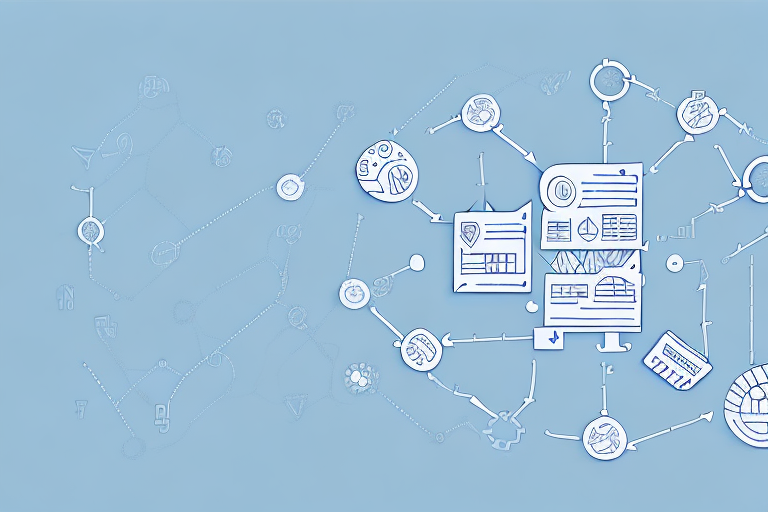In today’s global business environment, ensuring sanctions compliance in your supply chain is not only a legal requirement but also crucial for maintaining the integrity of your organization. With increasing regulations and growing complexity in international trade, it is essential to understand the importance of sanctions compliance and the consequences of non-compliance.
Sanctions compliance refers to adhering to the laws and regulations imposed by government bodies, such as the Office of Foreign Assets Control (OFAC) in the United States. These regulations are designed to prevent individuals, entities, and countries from engaging in illegal activities, including terrorism, human rights abuses, and proliferation of weapons of mass destruction, among others.
Non-compliance with sanctions regulations can lead to severe consequences, both financially and reputational. Organizations that fail to comply may face hefty fines, loss of business opportunities, and damage to their brand. Moreover, individuals responsible for non-compliance can also be subject to criminal charges and imprisonment.
To establish a strong sanctions compliance program, several key elements need to be considered. First and foremost, conducting a thorough risk assessment is essential. This involves identifying potential risks and vulnerabilities within your supply chain and assessing the likelihood and impact of sanctions violations.
It is crucial to identify high-risk areas in your supply chain, such as countries or regions with a history of sanctions violations or industries with a higher likelihood of non-compliance. By understanding these vulnerabilities, you can develop targeted strategies and allocate resources effectively to mitigate the risks.
In addition to risk assessment, implementing robust due diligence processes is critical. This includes screening suppliers and customers for sanctions risks. By conducting thorough background checks and screening against government watchlists, organizations can minimize the chances of engaging with sanctioned individuals or entities.
Establishing clear policies and procedures for sanctions compliance is equally important. These policies should outline the expectations and responsibilities of employees, including how to identify and report potential sanctions violations. Regular training sessions should be conducted to educate employees about sanctions regulations and the importance of compliance.
To ensure effective sanctions compliance, organizations must also strengthen their internal controls. This involves implementing systems and processes to detect and prevent violations. By establishing effective control mechanisms, such as transaction monitoring and escalation procedures, organizations can promptly identify and address any potential breaches.
Another critical aspect of sanctions compliance is maintaining an effective recordkeeping system. It is essential to document all compliance efforts, including risk assessments, due diligence procedures, and training sessions. This documentation not only demonstrates compliance to regulatory authorities but also serves as a valuable resource for internal audits and assessments.
In today’s rapidly changing global landscape, keeping up with sanctions changes is a challenge. Collaborating with industry peers and government agencies can help organizations stay updated on regulatory changes. Participating in industry associations and regulatory forums provides valuable insights and allows companies to share best practices.
Conducting regular audits and assessments is vital to continuously monitor and improve sanctions compliance efforts. This includes evaluating the effectiveness of policies and procedures, conducting internal and external audits, and implementing remedial actions to address any identified shortcomings.
Technology plays a crucial role in enhancing sanctions compliance in the supply chain. Utilizing advanced screening tools and software can help organizations automate and streamline the screening process. These tools can quickly identify potential risks and ensure consistent and accurate results.
While implementing effective sanctions compliance measures, organizations may encounter challenges and pitfalls. Adapting to new regulations, managing complex supply chains, and navigating cross-border compliance can be daunting. However, by staying informed, actively addressing challenges, and continuously improving processes, organizations can overcome these hurdles.
Finally, case studies provide valuable lessons learned from companies that have successfully ensured sanctions compliance in their supply chain. By studying these examples, organizations can gain insights into best practices, identify successful strategies, and avoid common pitfalls.
In conclusion, ensuring sanctions compliance in your supply chain is essential for any organization operating in the global marketplace. By understanding the importance of compliance and the consequences of non-compliance, implementing robust policies, conducting risk assessments, and utilizing technology, organizations can maintain the integrity of their supply chains and mitigate the risks associated with sanctions violations.
References:
1. Office of Foreign Assets Control (OFAC) – U.S. Department of the Treasury. (n.d.). Retrieved from https://home.treasury.gov/policy-issues/financial-sanctions
2. U.S. Department of Commerce Bureau of Industry and Security. (n.d.). Retrieved from https://www.bis.doc.gov/
3. U.S. Department of State. (n.d.). Retrieved from https://www.state.gov/
References:
1. Office of Foreign Assets Control (OFAC) – U.S. Department of the Treasury. (n.d.). Retrieved from https://home.treasury.gov/policy-issues/financial-sanctions
2. U.S. Department of Commerce Bureau of Industry and Security. (n.d.). Retrieved from https://www.bis.doc.gov/
3. U.S. Department of State. (n.d.). Retrieved from https://www.state.gov/
4. Federal Trade Commission. (n.d.). Retrieved from https://www.ftc.gov/
The Federal Trade Commission (FTC) is an independent agency of the United States government that aims to protect consumers and promote competition. Their website provides valuable information on consumer protection, including tips on avoiding scams, understanding your rights, and reporting fraudulent activities.
5. U.S. Securities and Exchange Commission. (n.d.). Retrieved from https://www.sec.gov/
The U.S. Securities and Exchange Commission (SEC) is a regulatory agency that oversees the securities industry, including stock exchanges, broker-dealers, and investment advisors. Their website offers resources for investors, such as educational materials, enforcement actions, and information on how to file complaints.


